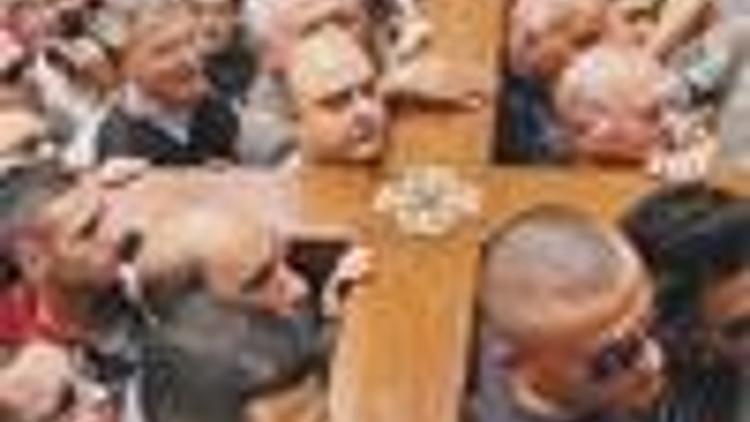40 days and 40 nights of festivities in old Anatolia
Güncelleme Tarihi:

by Vercihan Ziflioglu
Oluşturulma Tarihi: Nisan 11, 2009 00:00
ISTANBUL - For hundreds of years, Easter celebrations in Anatolia were inclusive festivities and a time of great joy in the region.
The celebrations lasted 40 days and 40 nights, and peoples’ doors were always open, so while each community celebrated Easter in its own way, they also shared their traditions with others. The women of every household would wake up early to prepare the feast. Special loaves of bread, traditional dishes and sweets would adorn the tables, with the elderly women of the family teaching the younger generation how things should be done.
Easter eggs were a mainstay of the events and they took special expertise to prepare. Red onions would be peeled and their skins set aside to be used for coloring the eggs. The eggs and the onion skins would be boiled together for hours, until the eggs turned red. Special vegetables and an insect that secreted a red, ink-like substance would also be used to color eggs, a tradition that is still prevalent among Anatolian Christians, as well as those in Armenia. The bugs are called "vortan garmir," or worm’s red, and their secretions are also used in other dyes.
For Christians, the red used to color Easter eggs symbolizes Jesus’ blood. However, the practice of coloring eggs goes back to pre-Christian pagan traditions and the spring festivals held in Anatolian communities. People believed that the eggs would trap the devil inside forever, guaranteeing that the world would live in peace and prosperity.
40 days and 40 nights
For Anatolian Christians, Easter was marked by a 40-day period of fasting and mourning, followed by celebration. On Easter morning, the first thing people would do was attend church services. Families would don their best clothes for the occasion. In villages without a church, priests would come to lead a prayer and bless the homes.
The festivities would last until the middle of the night, with songs and dancing. These occasions were also an opportunity for young men and women to pick their future spouses. Muslims were not excluded from the festivities and were in fact an integral part of them.
Easter eggs were a mainstay of the events and they took special expertise to prepare. Red onions would be peeled and their skins set aside to be used for coloring the eggs. The eggs and the onion skins would be boiled together for hours, until the eggs turned red. Special vegetables and an insect that secreted a red, ink-like substance would also be used to color eggs, a tradition that is still prevalent among Anatolian Christians, as well as those in Armenia. The bugs are called "vortan garmir," or worm’s red, and their secretions are also used in other dyes.
For Christians, the red used to color Easter eggs symbolizes Jesus’ blood. However, the practice of coloring eggs goes back to pre-Christian pagan traditions and the spring festivals held in Anatolian communities. People believed that the eggs would trap the devil inside forever, guaranteeing that the world would live in peace and prosperity.
40 days and 40 nights
For Anatolian Christians, Easter was marked by a 40-day period of fasting and mourning, followed by celebration. On Easter morning, the first thing people would do was attend church services. Families would don their best clothes for the occasion. In villages without a church, priests would come to lead a prayer and bless the homes.
The festivities would last until the middle of the night, with songs and dancing. These occasions were also an opportunity for young men and women to pick their future spouses. Muslims were not excluded from the festivities and were in fact an integral part of them.

